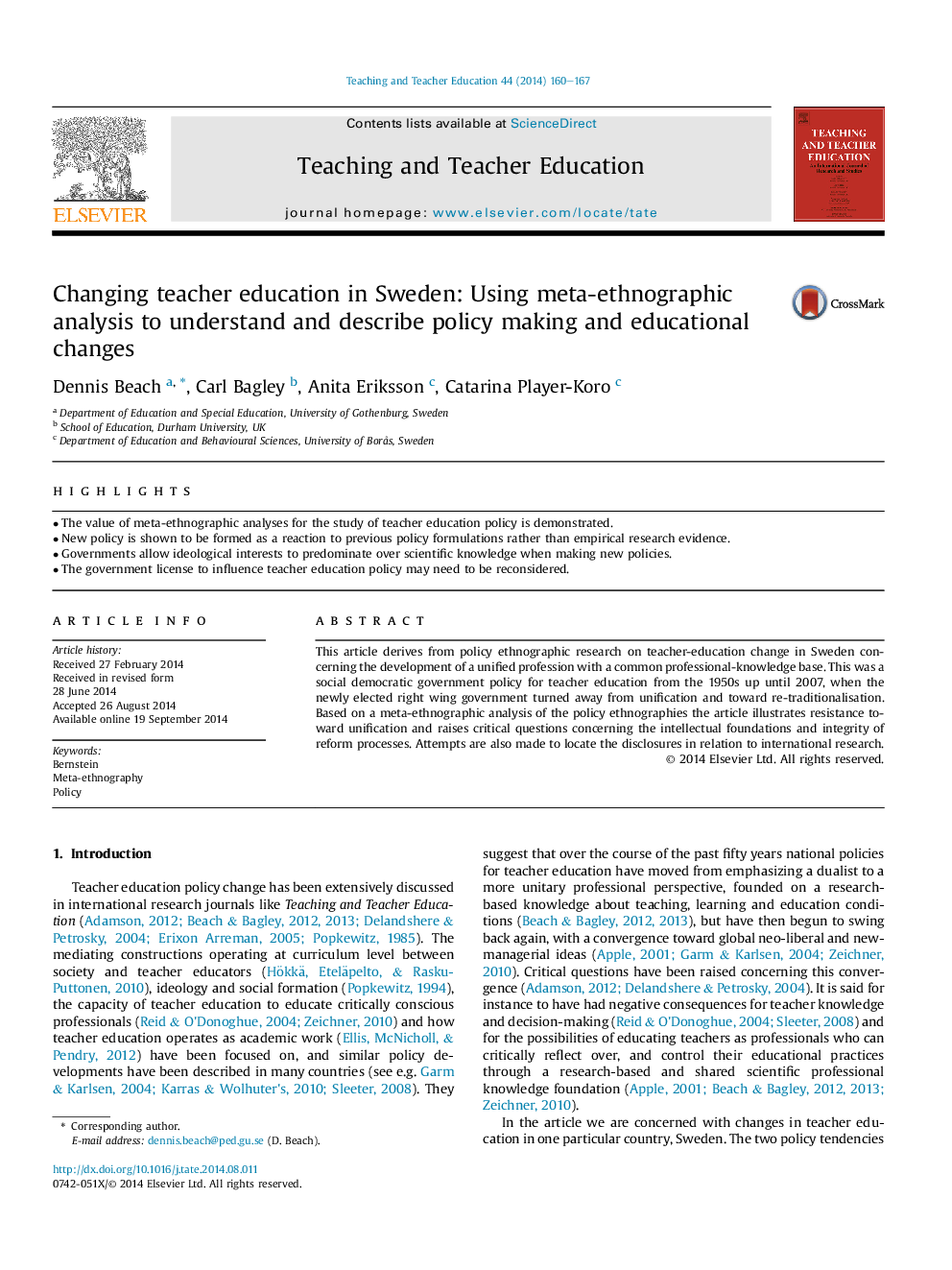| Article ID | Journal | Published Year | Pages | File Type |
|---|---|---|---|---|
| 373916 | Teaching and Teacher Education | 2014 | 8 Pages |
•The value of meta-ethnographic analyses for the study of teacher education policy is demonstrated.•New policy is shown to be formed as a reaction to previous policy formulations rather than empirical research evidence.•Governments allow ideological interests to predominate over scientific knowledge when making new policies.•The government license to influence teacher education policy may need to be reconsidered.
This article derives from policy ethnographic research on teacher-education change in Sweden concerning the development of a unified profession with a common professional-knowledge base. This was a social democratic government policy for teacher education from the 1950s up until 2007, when the newly elected right wing government turned away from unification and toward re-traditionalisation. Based on a meta-ethnographic analysis of the policy ethnographies the article illustrates resistance toward unification and raises critical questions concerning the intellectual foundations and integrity of reform processes. Attempts are also made to locate the disclosures in relation to international research.
